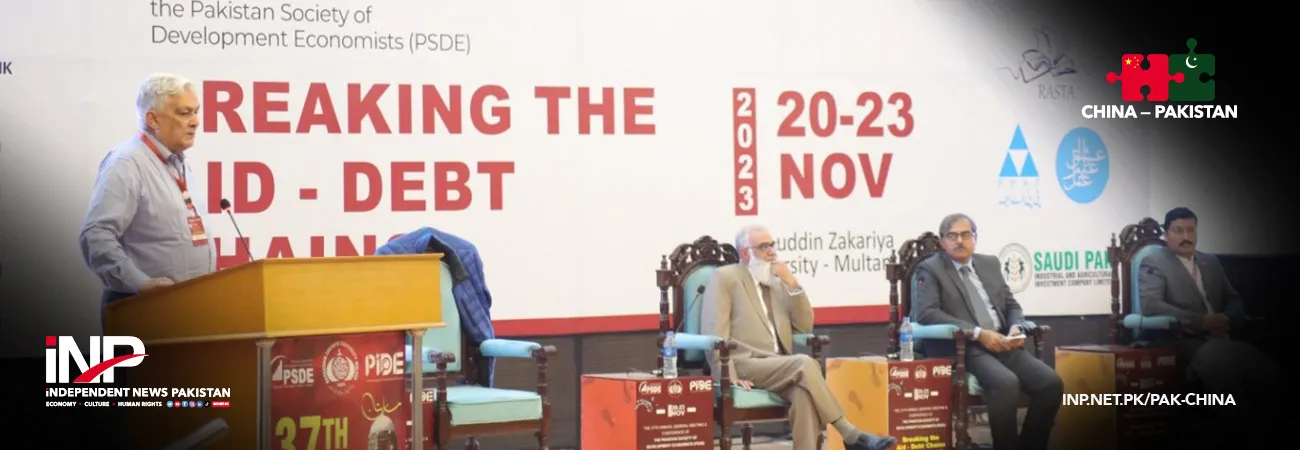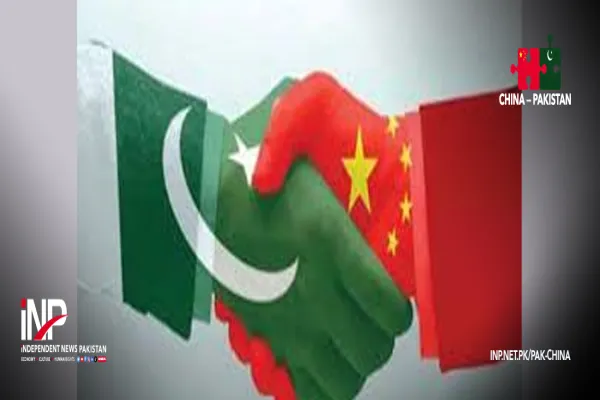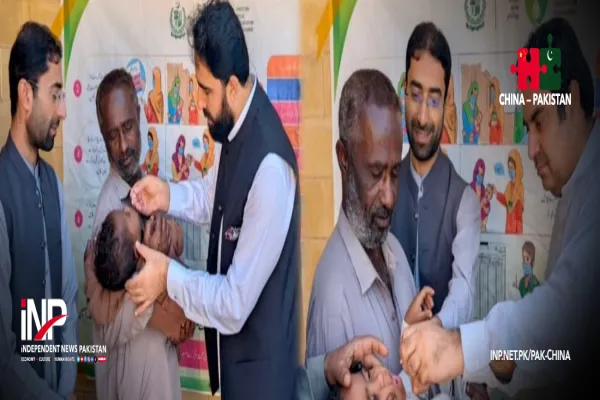i NEWS PAK-CHINA
The 37th AGM and Conference of the Pakistan Society of Development Economists (PSDE), hosted by the Pakistan Institute of Development Economics (PIDE), in collaboration with Bahaduddin Zakariya University, Multan, began here. In the inaugural session of the Conference, Dr Nadeem Ul Haque, Vice-Chancellor of PIDE and President of the PSDE emphasized the significant contributions of Mahbub ul Haq to PIDE. He also highlighted PIDE & PSDE’s role in asking pertinent questions and engaging in impactful research exploring the country’s wide-ranging socio-economic issues. Dr. Nadeem stressed the need for a paradigm shift in thinking and the importance of asking critical questions. He said that the economic system in Pakistan is on a "life support system." Dr. Nadeem said that there is an immediate to explore challenges such as exchange rates, unemployment, and the aid-debt trap. The PIDE Vice-Chancellor stressed the need for investment.
He said that in Pakistan no one is concerned with investment, while everyone’s primary concern is poverty. Thus, the focus should be shifted to investment and finding ways to increase it. Regarding the economic and development plans in Pakistan, he pointed out the irony of having too many plans yet too little development. Dr Nadeem further pointed out that the solution to our economic quagmire is not getting more debt. He criticized the overreliance on loans, particularly from institutions like the IMF, and likened going to the IMF repeatedly to going to the emergency ward. He said that Pakistan was in the perpetual cycle of aid-debt traps involving IMF, donors, consultants, and Transparency International. Dr Nadeem also questioned the effectiveness of raising taxes and the lack of challenges to consultants in the development process. In the secretary’s report, Dr Iftikhar Ahmad, Secretary of the PSDE, reiterated PIDE’s desire to initiate and collaborate on further research with researchers in South Punjab. He said that in this year’s conference, two panel discussions are focusing on South Punjab, featuring panellists from academia and regional centers.
He highlighted the need for inclusivity by bringing students from all around Punjab to the discussions, which PIDE has been doing for over 4 years now. The first panel discussion of the Conference was on “Foreign Aid: Boon or Bane?” The discussion was moderated by Shahid Mahmood, Research Fellow at PIDE, Asad Hayauddin, Former Secretary of the Economic Affairs Division, Tobias Haque, Lead Country Economist for Pakistan at the World Bank, and Naveed Aziz, Senior Governance Advisor to the FCDO. The moderator said that since 1950, Pakistan has received over USD 200 billion in foreign aid. A significant chunk of the foreign aid has been in the form of loans. Also, a large amount of aid has been “tied aid.” He said that the donor agencies influence major policy decisions. However, there is a dearth of cost-benefit analysis of the projects. Despite continued aid programs and projects, the human development indicators of the country remain abysmal. During the last two decades, net resource transfer from Pakistan has turned negative, with repayments amounting to over USD 80 billion.
He said that the majority of the debt and aid accumulated during this period was for the balance of payment support. Asad Hayauddin remarked that the Pakistani government continues to lack direction. Consequently, we turn to the donors to help set our development direction. Pakistan’s strategy for long has been external resource mobilization for short-term gains. He said that India and Bangladesh have also turned to the IMF, but they stuck to the plan to reverse the crises. Pakistan, on the other hand, deviates from the agreed-upon path after gaining some sense of stability following support from the IMF and other donor agencies. He said that over 60% of the aid and loan provided by the US to Pakistan since the 1960s has been for budgetary support with no direct impact on the general public of the country. Tobias Haque said that there are numerous examples where countries came to the donors with a homegrown development plan and sought development agencies’ financial and technical assistance. On the other hand, in Pakistan is that there exists no indigenous development plan.
Thus, Pakistan needs to develop a crisp indigenous development plan and then seek donors’ assistance. In such a case, the donors will have very little wiggle room to deny assistance on Pakistan’s terms. He further emphasized that unproductive utilization of aid can have disastrous impacts on the country’s macroeconomic balances. He said that the country’s governance issues coupled with the lack of institutional capacity are major bottlenecks that need immediate redressal. Naveed Aziz said that aid utilization has not necessarily been entirely negative in Pakistan, and aid dependence in some areas has come down as well. For example, Pakistan was the largest recipient of Official Development Assistance, which has now come down from 15% to 1%. Currently, the major issue faced by Pakistan is that the government is not an efficient user of money. He stressed that there exists an indigenous poverty of thought in the country.
All panelists agreed that Pakistan needs to develop a long-term development plan with a clear indication of what support it requires from external sources and to what extent. Pakistan’s debt utilization stands as a major issue that has to be immediately improved. Pakistan needs to realize that aid is not the solution to problems, instead, it is just a tool to facilitate the implementation of development plans and achieving the set goals. The cohosts of PSDE’s 37th Annual Conference, organized by PIDE, include the World Bank Group, UNICEF, RASTA, the Bank of Punjab, Pakistan Poverty Alleviation Fund, Saudi Pak Agricultural and Industrial Investment Company, and BZU School of Economics.
Credit: Independent News Pakistan (INP) — Pak-China









